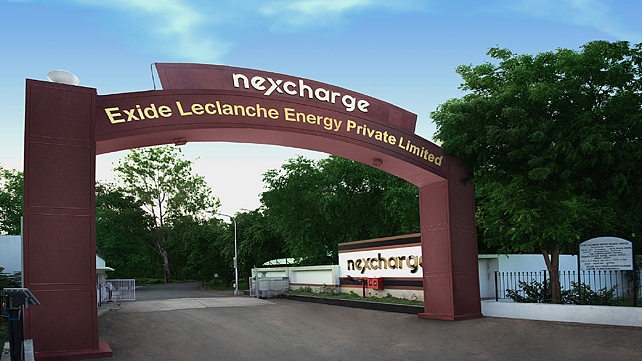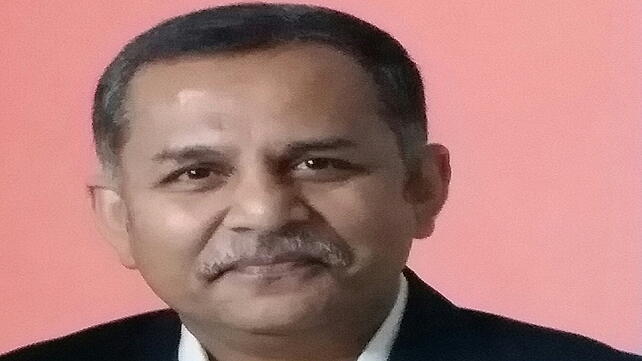
Batteries are much more to electric automobiles than what petrol, diesel, and CNG are to ICE vehicles. So much so that the opportunity in India's EV battery market is forecast to be worth over $ 15 billion (INR 1.12 trillion) by 2030.
The future of EV batteries can also be gauged from the fact that the government of India has announced a Production Linked Incentive (PLI) scheme worth over $ 2.47 billion (INR 181 billion) to boost manufacturing of these in the country.
Exide, India’s foremost lead-acid battery maker with over 70% share had forayed into the electric vehicle battery market about three and half years ago. The company had also entered a partnership with Switzerland-based Leclanche to manufacture EV batteries in the country. However, it is only recently that the company has commissioned and opened its first EV battery manufacturing plant in at Prantij in Gujarat.
Mehul Shah, VP Transportation BU, Nexcharge told Mobility Outlook, “We are trying to create Nexcharge as a brand focusing on Lithium-ion battery pack manufacturing. The prime aim of Nexcharge is to supply batteries for EV applications but we will also be operating in the field of other industrial applications including battery management system BMS.”
Spread across 610,098 sq ft, with six fully automated assembly lines and testing labs, and an installed capacity of 1.5 GWh, Nexcharge's first facility has been built with an investment of over INR 250 crore. It is worth noting here that the majority, 83% of Nexcharge's equity, is owned by Exide whereas the rest lies with Leclanche.
Focus On Electric 2W, 3W market
Nexcharge, at the moment, is focusing on manufacturing and supplying batteries to electric 2W and electric 3W OEMs in India. These two verticals, as a matter of fact, are leading Indian EV sales. Recent reports by FADA point out that in comparison to 17,802 electric 4Ws sold in India in FY21, a total of 409,212 electric two- and three-wheelers were sold in India in FY 2022.
This can be further bifurcated into 231,338 electric 2W and 177,874 electric 3W. It is evidently clear that these two sectors combined own the lion's share in the Indian EV market.
“The battery pack size for 2W, 3W, and the commercial EV vehicles varies, and hence no one mentions the capacity in the number of batteries but always in Watt Hour. Ours is the first Gigawatt plant in India,” highlighted Shah.
A significant amount of the INR 250 crore investment in Nexcharge has been deployed to transform one of Exide’s existing lead-acid battery manufacturing units into a Lithium-ion battery manufacturing unit.

Exide's bet on the EV battery market included demolishing the existing Prantij facility and building a Lithium-ion battery manufacturing facility from scratch. Shah pointed out that the facility would have started catering to OEMs much earlier if COVID-19 had not forced the lockdowns in the country.
“Though we were working remotely during lockdowns, the factory construction could not take place as scheduled during that period. That's why the plant commissioning got late. We had anticipated the plant to be ready and commissioned within 18 months of us signing the collaboration agreement with Leclanche but it got delayed by 15 months,” shared Shah. The operations at the facility were started in October 2022.
Nexcharge, since then, has worked with different OEMs to develop battery packs for over 45 products. Shah shared that Nexcharge is currently working with over 55 OEMs to research, develop, and manufacture batteries for them. “It is an equal distribution in terms of 2W, 3W and commercial EV OEMs we are working with,” he said. Shah refrained from sharing names of any OEMs due to non-disclosure-agreements signed by Nexcharge with its clients.
Exploring New Battery Chemistries
One of the biggest highlights of the collaboration between Exide and Leclanche is the technology transfer taking place from Leclanche to Exide. The latter is known as the inventor of primary cells in the world.
“Leclanche is known as the pioneer of Lithium-ion cell manufacturing in the world. They had also invented the primary cell approximately 70 years back. George Leclanche had invented the cell and that is why the company was named after him,” highlighted Shah.
Exide, under the Nexcharge banner, is also exploring other battery chemistries and technologies to deploy in the electric vehicle market. The company is actively researching new battery chemistries and, as Shah put it, has been given a ‘free hand’ to source these from any part of the world. While the present EV battery market is ruled by Lithium-Nickel-Manganese-Cobalt-Oxide (NMC) chemistry, a few OEMs like Tesla have already started using Lithium-Nickel-Cobalt-Aluminium-Oxide batteries.
Zinc-carbon, Alkaline, Mercury Oxide and Silver Oxide are some other EV battery chemistries being researched by different electric vehicle and battery OEMs of the world. The global electric vehicle battery market, as per Fortune Business Insights, is projected to grow from $ 27.30 billion in 2021 to $ 154.90 billion in 2028 at a CAGR of 28.1%.
“Nexcharge is not only just focused on Lithium-ion batteries. It is too early to tell but we are also working on battery chemistries that are most suitable for the Indian conditions,” Shah pointed out.
Lithium-Ion Manufacturing In India
Nexcharge, given the fact that there are no manufacturers of Lithium-ion cells in India, is open to sourcing these from all parts of the world. Exide, as a matter of fact, is also actively exploring establishing a Lithium-ion cell manufacturing plant in the country. Nexcharge, at the moment, is sourcing all the components, minus Lithium-ion cells, from India. Imported components constitute 60% value of the company's total bill of materials.
“We have estimated a two years timeline before we start sourcing Lithium-ion cells from our parent company Exide,” said Shah.
Exide had also applied for the battery manufacturing PLI announced by the government of the country. The company had made it to the list of companies that were selected and waitlisted but it could not make it to the list of final four that were included in the PLI. Exports for Nexcharge, given the fact that its parent company Exide exports to over 60 countries, remain one of the focuses.
At present, out of 200 individuals working for the Nexcharge brand, 60 are positioned in the R&D unit in Bangalore. All the batteries developed for the Indian market, as Shah claimed, are researched and developed by the Indian R&D team following requirements submitted by different OEMs.